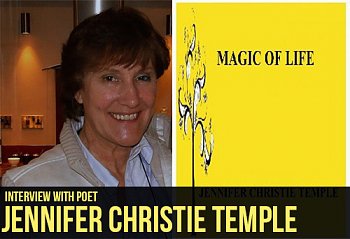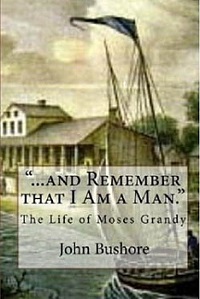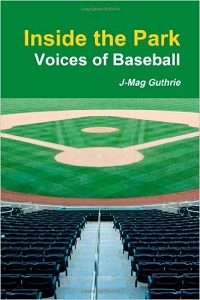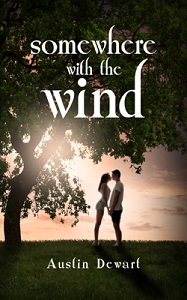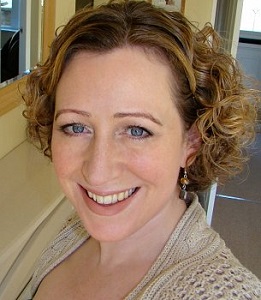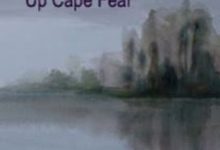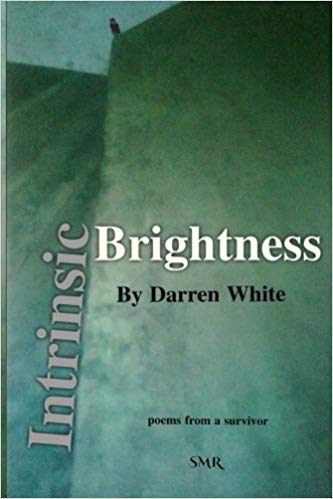Interview with Poet, Jennifer Christie Temple
In celebration of National Poetry Month who better to interview than popular mentor and poet, Jennifer Christie Temple. Jen is probably better known to WF members as jenthepen. Thank you for joining us, Jen!
Jen, please tell us a little about yourself and your background.
I’m retired now and that gives me the time to concentrate on writing poetry and do all the things that seemed an indulgence when I was writing for money and had to tailor my stories to suit the various magazines and newspapers that I wrote for.
I grew up in rural Hertfordshire, which is now on the very edge of North London because of the urban sprawl of the past fifty years. It was a more wild and beautiful place when I was growing up there.
When I started out on my career, it was as a research biologist, specialising in entomology. That might sound more impressive than it was; I was out on the farm and up to my armpits in ticks, mosquitoes and sheep maggot flies. Even worse, I never found a helpful treatment for anything! I got out at the first opportunity.
Over the years, I have done all sorts of jobs, from running an antique shop to working as a packer in a plastics factory. Always, alongside everything, I was writing and sending out stories in the hope of publication. After a while, I managed to get my success rate up to about one in three and also landed a regular column in The Daily News, a Birmingham paper.
In some ways, I think these jobs away from writing allowed me to gather valuable experience that has been a help in my stories and poems. Even when I began to earn money from my writing, I never considered giving up the day job because I recognised that this contact with ‘real life’ was a place where I could harvest inspiration for writing.
When did you start writing poetry?
I did not begin to write poetry seriously until after I retired. I have always loved to read poetry and I often wrote funny rhymes for friends and family. When I moved away from home, as a teenager, my mother and I used to write all our news to each other in rhyme – page after page of doggerel that was often funny and always fun. Mum’s dead now but I still have some of those letters and now they are like a light-hearted journal of those years.
A few years ago, I joined a science and philosophy discussion forum and the philosophy that was being discussed there really got me into deep thinking. That sort of contemplative reasoning is hard to incorporate into stories but it suits poetry really well and so, because I always need to express myself through writing, I turned to poetry.
What inspired you to write Magic of Life?
Well, I didn’t start out with the idea of writing a book of poetry. I had discovered that I could express my ideas through my poems and, when I looked through what I had, I realised that they followed a loose theme and hung together pretty well. That was when I began to think that maybe I could publish them as a collection.
Did you self-publish or follow the traditional publishing route?
I self-published through Smashwords.
If self published what motivated you to follow this path?
As a new poet, especially an aged one, it is almost impossible to get poetry published traditionally in the UK unless it is a single poem in a collection from several poets and produced in a small press.
My only option, if I wanted my poems out there, was to self publish.
What advice can you offer aspiring poets?
I would only say, be brave enough to trust yourself and your feelings. Listen to your own musings because it is your thoughts and your approach to life that make your voice unique.
Please can you share one of your poems?
This is something I’ve just written. It was inspired by the idea that small decisions and choices – the things we decide to do, or not – can make a real difference to our lives.
Eyes on Tottenham Court Road
Out of the theatre and into the street,
drumbeat on concrete, a mumbling collection
of wet reflections in road and mind.
Bumble and jostle, a wriggling swarm,
a crowd, unformed yet
making a picture in polychrome,
a wriggling body
heading home.
Surging forward to car park and tube,
unspeaking collective, reflective, heads down,
a lazy rugby scrum.
Some come against us, sidestep and weave.
Breathe fast, keep up, don’t
lag behind. A trip, a fall
could be your last.
Mind the bus!
A throng of minds enmeshed, refreshed;
the sad, the lonely surge along, thoughts
lifted now with magic, love
and royal courts. Minds filled
with dreams unparalleled,
swelled and plumped
with notions caught
and wrought from writer’s art
and player’s song.
The strangest thing, as I pushed on,
part of the crush, the rush and surge,
I glance and see a stranger’s face;
he’s looking straight at me.
The crowd dissolves,
revolves in mist that
captures time and holds it fast
until, at last, we stand alone.
It’s only him and me.
Eyes locked in silence
as we gaze, the sound
of crowds around us fades…
I doubt the moment lasted long,
the throng pressed on, and yet
it seemed our silent eyes
had gleaned a bond and
realised a mutual meaning,
seeming deep, yet fleeting.
Given chance, I might have followed,
wallowed in those startling feelings,
reeling from the tingling zing.
What if I had? What might have been?
What differences might we have seen?
But, as it was, I watched him pass,
disappear into the throng,
as though this moment we had shared
and dared to know
was somehow wrong.
How does it feel hearing your poems read out loud by someone else?
I’m sure it must feel fabulous but it has never happened to me yet, unless you count my sister-in-law, who phoned me when she bought my book of poems and read her favourite out to me.
What do you look for in a critique of your poems? Understanding of content, judgement or support?
I appreciate anything that people take the time to tell me about my work. Support, encouragement and praise feel good, of course, but suggestions for improvement or comments about things that are unclear or not working for the reader are always appreciated too. Sometimes, a glimpse of how my work is coming across to others can make me look at it in a whole new light. I don’t always act on every comment – sometimes I don’t want to alter the meaning or direction in a way that is suggested – but being given the chance to consider and evaluate changes is a gift that a good critique can give and I’m always grateful for it.
The thing that really excites me about a critique is when the reader finds a meaning in my words. It may not be the thought that I was trying to express but that doesn’t matter to me at all. The simple fact that my words have evoked an emotion or fresh thoughts in someone else feels wonderful.
What would you say to someone who says “free verse is just prose split into lines”?
I’ve learned that it’s next to impossible to change a fully-formed opinion so I’d probably not get into a debate about it, but it’s not a point of view I would agree with.
For me, poetry is all about discovering a well-presented idea through elegant wording, imagery and metaphor. Free verse, when done well, has a musicality and rhythm even though these aspects are not set out in a regular or recognised pattern.
Prose can be quite poetic as poetry can be quite prosaic but, if it works as a poem it is a poem, regardless of the way it is set out.
Can you remember the first poem you wrote?
Not without blushing! My High School literature teacher was a gentle, artistic soul called Miss Starmer. I was twelve when she asked us to write a poem for homework based on the prompt My Favourite Things.
I struggled for ages but the famous song from The Sound of Music kept playing over in my mind. I tried to make my poem different but, despite my best efforts, it ended up as a list of things that fitted the tune of the song perfectly! I’m ashamed to say that I even had kittens and packages tied up with string in there.
Poor, unsuspecting Miss Starmer gave me top marks and then read out my poem to the class. The other kids were not so easily fooled. I suffered their pointed stares as my poem was read and for weeks they serenaded me with that song at every opportunity! It was no more than I deserved and it taught me a valuable lesson about plagiarism.
How much has your style changed since that first poem?
Well, I hope my style is my own now, at least. But seriously, I think my style is rather fluid and tends to change depending on the subject and form. I quite like surprising myself by writing poetry from different angles but it does mean that my work might be hard to identify as mine unless my name is affixed. I do use a lot of internal rhyme and alliteration and I suppose that aspect is becoming part of my style as I write more.
If you were a castaway on a desert island and could choose five books to be washed ashore with you, what would they be?
The thought of living for any length of time with just five books is pretty unimaginable but, ok, here goes…
Six Centuries of Verse – This is a wonderful selection of poems (with illustrations) from the 14th to the 20th century. It was compiled by Anthony Thwaite and he gives a commentary about each poem and the poet who wrote it.
Raja Yoga by Yogi Ramacharaka – This is book that I discovered many years ago and one that I turn to when I need a bit of self belief.
A Coney Island of the Mind by Lawrence Ferlinghetti – simply because it is a collection of great poems.
A Short History of nearly Everything by Bill Bryson. I love this book! It is packed with masses of information, all presented in Bryson’s wonderfully relaxed and humorous style.
And finally, I would choose London Labour and The London Poor by Henry Mayhew. This is a fascinating book, compiled by Mayhew in about 1850. He travelled around the mean streets of early Victorian London, interviewing the poor about their work and their lifestyle. I dip into my copy from time to time and never tire of it.
Which poet has inspired you the most and why?
I’m inspired by poets every day so it’s really difficult to pick out just one. If pushed for an answer, I think I’d choose T.S. Elliot. His imagery is magical and he writes inside deep metaphors that can make a seemingly plain message into a voyage of discovery, once you learn to look behind his words. When I read his work I’m always inspired to try harder.
What are you working on now?
I am trying to write a long narrative poem about the sinking of The Thames Steamer. This was a ship that plied between Dublin and London and sank off the Scilly Isles in 1841. There was only one member of the crew to survive the wreck, along with three women passengers and I’m trying to tell the story from his point of view.
I am also compiling a second collection of poems for publication.
Where and in which formats are your books available?
My book, Magic of Life, is available as an e-book from Smashwords, Barnes & Noble, Apple, etc. It can be downloaded in most formats, including epub and kindle.
Is there anything else you would like to add for our readers?
I would just pass on some advice that was given to me many years ago.
Always strive for that story just out of reach – the one that, as you try to write it, makes you think, ‘I’m not getting this.’ This is the one you should pursue; stretch yourself and you will produce something that surprises you.

